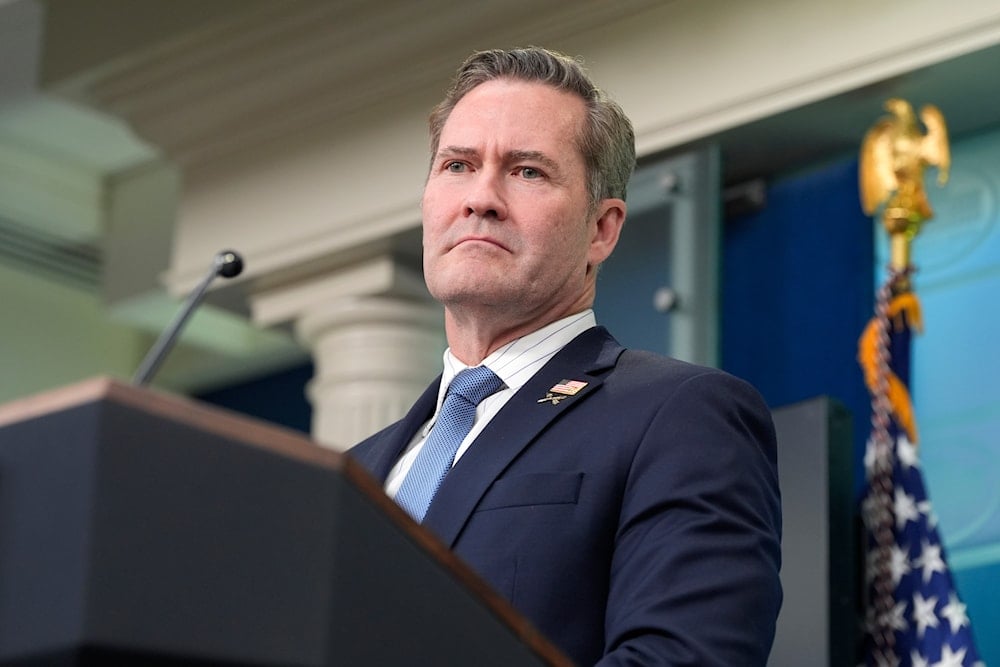Mike Waltz used Gmail for official work: Washington Post
While the National Security Advisor used his Gmail account for unclassified matters, another top official used Gmail to discuss highly sensitive military information.
-

White House National Security Advisor Mike Waltz listens to a question from a reporter in the James Brady Press Briefing Room at the White House, in Washington, on February 20, 2025 (AP)
National Security Advisor Michael Waltz and other high-ranking officials handled official matters through personal Gmail accounts, The Washington Post reported on Wednesday.
According to The Post, Waltz used Gmail for things including his calendar and unclassified work documents, and while these are not as sensitive as attack plans, cybersecurity experts told The Post that this data should be stored somewhere other than a personal Gmail account.
A senior national security aide reportedly used Gmail to discuss highly technical matters with colleagues at other government agencies, including conversations about sensitive military positions and advanced weapons systems tied to an ongoing conflict, according to the Washington Post.
NSC spokesperson Brian Hughes told Axios in a statement that this was merely another effort to divert attention away from President Trump’s effective national security policies, which have been safeguarding the country.
"Let me reiterate, NSA Waltz received emails and calendar invites from legacy contacts on his personal email and cc'd government accounts for anything since January 20th to ensure compliance with records retention, and he has never sent classified material over his personal email account or any unsecured platform," Hughes told Axios.
This comes as the US government comes under scrutiny following the Signal messaging app scandal, where Mike Waltz accidentally added a journalist to a group chat that was discussing real-time military updates from US operations in Yemen.
The SignalGate scandal
On March 24, The Atlantic published a report revealing a highly unusual breach of operational security within the Trump administration, revealing that a journalist had been inadvertently included in a private Signal group chat where top US officials were coordinating military strikes on Yemen.
The group chat, which involved Defense Secretary Pete Hegseth, National Security Advisor Michael Waltz, Vice President JD Vance, and several others, contained in-depth conversations about strike schedules, target selections, and weapons loadouts—sensitive details that would typically be restricted to classified government channels.
The editor-in-chief of the magazine was added to a group named "Houthi PC small group," where the top US officials discussed military operations and strikes two hours before they occurred, while Defense Secretary Pete Hegseth revealed precise operational intelligence.
The White House issued a statement on March 25 in response to The Atlantic, saying, "This is a coordinated effort to distract from the successful actions taken by President Trump and his administration to make America's enemies pay and keep Americans safe."

 3 Min Read
3 Min Read










